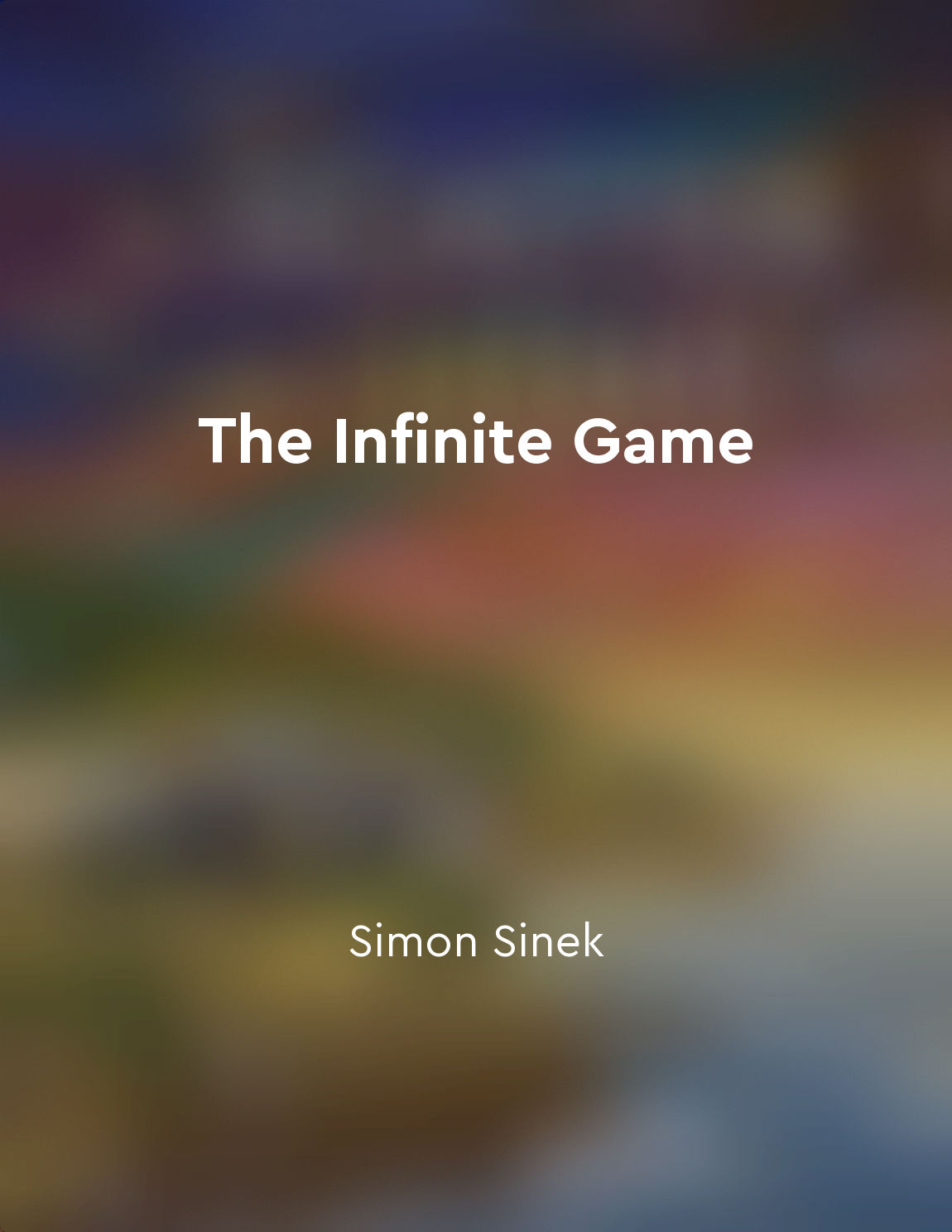Games can be finite or infinite from "summary" of The Infinite Game by Simon Sinek
The concept of games being finite or infinite is a fundamental idea that shapes how we approach challenges and opportunities. In a finite game, the rules are fixed, and the goal is to win within those parameters. This could be a game with clear boundaries and defined rules, like a football match or a chess game. The players know what it takes to win, and the game ends when a winner is declared. On the other hand, an infinite game is characterized by changing rules and uncertain outcomes. The goal is to keep playing and outlasting the competition, rather than achieving a specific victory. In an infinite game, the players are focused on staying in the game for as long as possible, adapting to new challenges and opportunities as they arise. Finite games are often played in a competitive mindset, where success is measured by beating others. There is a clear endpoint, and winning is the ultimate objective. In contrast, infinite games are played in a collaborative mindset, where success is measured by staying in the game and contributing to a larger purpose. The focus is on playing well and playing for the long term, rather than achieving a short-term victory. Understanding the difference between finite and infinite games is essential for navigating the challenges of life and business. By recognizing when we are playing a finite game, we can strategize and compete effectively within the rules. And when we are playing an infinite game, we can focus on staying in the game and working towards a broader purpose.- We can make better decisions, build stronger relationships, and ultimately find more fulfillment in our lives. So, the next time you find yourself in a challenging situation, ask yourself: Are you playing a finite game or an infinite game? And adjust your approach accordingly.


